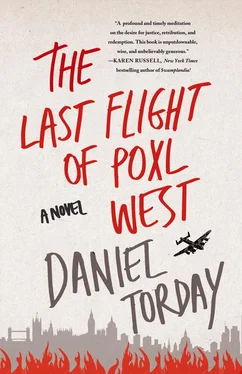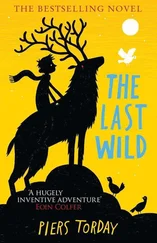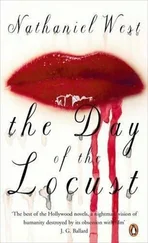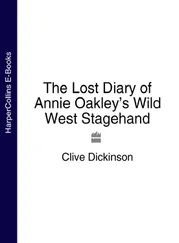“I’ll go refill our beer,” I said.
Air had returned to the room. The publican pulled me a Watney’s. Clive and I clacked beer glass and mug. Some coffee dumped out onto the table. We touched glasses. Those, at least, did meet.
5.
During the first weeks of autumn the bombs began to land on East Enders, but not yet on us. Explosions had left thousands homeless and streaming into the city — and left our neighbors with a false sense of stability. Shelters filled. Morrison ordered the tube stations in central London billeted. Communities arose in stations all over the Underground. Londoners were beginning an exodus into their homes, under the streets, which would later find them moving north and east until they were clear of mortal threat.
At night I walked to the park across from our flat; iron railings of the park’s fence had been stripped during the salvage drive. In the middle of all that verdure, the call of rooks up in their plane trees, past dark, all the people were packed away in their air raid shelters in town or in their Anderson shelters out back. It was as if I had that city to myself. Where my outings to Prague had been comprised of the joy of thousands of people forever rushing at me — I learned that to live life is to lay oneself down to a wave, to feel as best one could the direction the current was flowing and then allow one’s body to go slack and have the wisdom not to fight it lest one drown — London at night during that anxious period of the war was tensile as the thin frozen sheet atop a moving river.
The air was thick with the dust of debris. Nightly bombings kicked up soot. Where behind closed eyes I once saw each of the faces I’d known in the stones of Prague, now my eyes were abraded by astringent dust. The air was filled with frantic resolve, so that even on a night like this, all thoughts were suffused with mortality. What we were seeing as we drove through those streets was only the beginning of thirty thousand civilian casualties. I came to feel almost ashamed of the fact that still holding sway over my mind was the image of my mother, naked, with her suitor in my father’s immense home. That when I woke at three in the morning with my mind churning; it was churning over that moment when I’d followed my instinct to leave Holland, not having thought of what it would mean to Françoise. What did such things mean now amid falling bombs in London and Rotterdam?
Well, everything. And nothing. And amid this, marked each day in the papers was not the notation of someone dying in a bombing, but of their having died “ very suddenly ”: “Thomas Brown of Lancashire died very suddenly Tuesday night”; “Sally Fargo died very suddenly earlier this week. She is survived by…”
There was no one to bury. How hard it is to believe a life has ended until one sees the body interred. Or the damage done.
It wasn’t long before Clive Pillsbury and I saw our first bombings firsthand. While people were arriving from the East End, having hitched rides, the two of us took long rides about greater London, surveying the damage and feeding squaddies. In Aldersgate one afternoon, a week after the evening of Clive’s confession, we passed a sandwich shop, its façade open like a cleft palate. A sign affixed to the door, left standing, while the rest of the front had been blown away, read MORE OPEN THAN USUAL.
“Let’s not stare too long,” Clive said.
It’d already been cleared of survivors.
Clive crossed arms over chest.
As I pulled away Clive turned to look at the building. Something more had been keeping my partner from looking. There was a mannered quality embedded deep in Clive which might have accounted both for his initial refusal to look at that building and the kind of obsessiveness that had led to his Zeno’s paradox madness. It might not be polite to stare at a birth defect, but when I first saw a man with a port-wine stain on his jaw while on a trip to Prague, walking the streets of the city, I had to be taught by my mother to look away. Such tact didn’t come innately. It had to be learned, and it struck me at times that men like Clive had learned the lesson perhaps too well.
Once we’d gone all the way past, Clive turned forward again. I was surprised to find that there seemed to be a new calm in him. Rather than ramping up his anxiety, seeing the damage firsthand had somehow eased the burden of expectation — as if the anticipation of fear was worse than danger itself.
“Be much work for a canteen truck now,” he said. “We’d better get some sleep.”
I watched to see if Clive futzed with his coffee less in the days to follow. Though I can’t be certain — we were now so busy we rarely had a moment to sit for a drink — it seemed to me that he did.
6.
Nighttime was a mad dash through black streets. Every night we were out until sunup, plying squaddies with drink and food as they dealt with bombed-out buildings. We skirted brick and broken glass, or some hoary old man in the street who had resolved not to be kept inside by something so trivial as a falling bomb, lucky not to have been hit, either.
“The fire’s over near London Wall, Poxl,” Clive would say, relaying word from our dispatcher, and then, “Didn’t we just pass our left?” and finally say, “I’m just certain that was the left-hand turn you wanted, Poxl,” and I would proceed as best I could. Bombs were dropping by the dozen. All across London the men of the rescue squads and fire brigades were rushing about, awaiting word from their dispatchers. We had come to wish we were on those teams who arrived first at the bombings. Our work was plagued by a distinct lack of heroism, a distinct lack of action. We followed the squaddies and the firemen, always five or ten minutes behind, ready to provide tea and coffee.
At home the bombings brought great strain to my cousins. Johana no longer made schnitzel or smazeny syr. She didn’t cook for us, and hardly seemed to eat at all. She hadn’t heard word from her husband in so long, we all assumed he was gone, though we didn’t say it aloud. Hers had been a marriage of convenience, and Johana had never valued fidelity, but even as she met other men in London, she grew more and more distant to Niny and me. To this day I don’t understand what emotions drove her then. What distance had been closed in those nights of our holding hands out back in our Anderson shelter began to grow again between us. I came home in late September, to find her sitting on the sofa, staring out the window. Something was wrong in the flat. It took a moment to discern: Streetlight shone on her little ceramic spitz.
“You must keep the curtains closed!” I said. Only months before it had been she who implored me to act in just such a way. I rushed over to close the blackout curtains. “It is imperative we provide no targets for their bombers.”
“What does it matter?” Johana said. Her bangs stitched her forehead like straw over the vats in our fathers’ leather yard. “Bombs will fall or they won’t.” She made no move to open the curtains again. She made no move to clear her face of her hair. Had Françoise reacted so blithely in the moments before bombs began to fall on Rotterdam? Even having to think of it tightened the muscles in my neck. I pushed the thought out of mind. I had nothing to say to her.
I found Niny in her room. She had a low light on, reading Dickens.
“You’ve heard her talk about Scott Pritchard,” Niny said. I had no idea what she was talking about. Whatever closeness we’d come to feel out in that Anderson shelter, Johana didn’t share with me details of her love life. “Johana has fallen in love with an East Ender.” Niny took the novel she was reading and placed it on her bedside table. “His house took a direct hit yesterday. Killed instantly.”
Читать дальше












